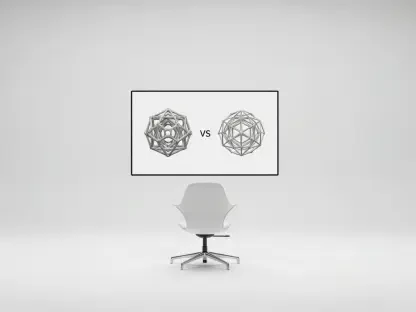In a striking move that blends artistry with activism, a legendary British musician has stepped into the spotlight to challenge proposed AI legislation in the UK, igniting a conversation about the future of creative rights and the protection of intellectual property in the digital age. This iconic figure, known for shaping modern music, has released a silent track titled “(Bonus Track)” in December, a 2-minute-45-second piece filled with ambient studio sounds and tape clicks. Marking the artist’s first release in five years, this track is more than just an experimental work; it serves as a powerful statement against a looming government bill expected in 2026. This legislation could allow tech companies to use creative content for AI training without permission or compensation, threatening the very foundation of copyright protections. The release is a precursor to a larger collaborative project, a silent album titled “Is This What We Want,” slated for early next year, limited to just 1,000 vinyl copies. This initiative underscores a growing unease within the music industry about the potential erosion of artists’ livelihoods in the face of unchecked technological advancement.
A Unified Stand for Artists’ Rights
The music community’s response to the proposed AI laws has been one of profound concern, with this silent protest acting as a creative yet pointed critique of government policy. Over a thousand artists, including luminaries like Hans Zimmer, Kate Bush, Annie Lennox, and Damon Albarn, have joined forces for the upcoming silent album, using recordings from empty studios and concert halls to symbolize the potential silencing of their craft. This project amplifies a shared fear that the legislation prioritizes AI companies’ profits over creators’ rights, potentially allowing the exploitation of music without fair recourse. The urgency of this issue is further highlighted by the artist’s prior involvement in an open letter signed by over 400 prominent figures in music, including Elton John, Coldplay, and Dua Lipa. Their collective plea urged policymakers to protect the British music sector from the risks posed by unchecked AI use, emphasizing that the industry’s cultural and economic contributions must not be undermined by corporate interests.
Balancing Innovation with Fairness
Reflecting on the broader implications, the music industry’s resistance captured in this silent protest marks a pivotal moment in the ongoing dialogue between technology and creativity. A recent survey by UK Music revealed that two-thirds of artists and producers view AI as a direct threat to their careers, with over 90% demanding safeguards for their image, voice, and works, alongside fair compensation for AI usage. This data paints a clear picture of an industry united not against innovation itself, but against policies that could sideline creators. The symbolic act of releasing silent tracks and albums stands as a reminder of what could be lost if intellectual property protections are weakened. Looking ahead, the path forward lies in crafting legislation that respects artists’ contributions while embracing technological progress. Policymakers face the challenge of fostering a balanced framework by 2026, ensuring that AI development does not come at the expense of the vibrant cultural heritage that musicians have built over generations.









